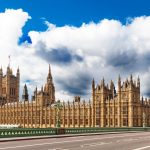The new Labour government has ruled out the introduction of digital ID cards after former prime minister Sir Tony Blair called for the measure to help control migration.
Business Secretary Jonathan Reynolds initially told Sky News that Home Secretary Yvette Cooper would look at “all sources of advice” on the issue.
But sources close to Ms Cooper said ID cards were not Labour policy and that has not changed, with Mr Reynolds later publicly ruling them out.
Politics Live: Starmer embarks on ‘reset’ tour
Sir Tony championed ID cards when he was in office but the idea was killed off after Labour lost power in 2010.
Writing in The Sunday Times the former premier said: “We need a plan to control immigration. If we don’t have rules, we get prejudices.
“In office, I believed the best solution was a system of identity, so that we know precisely who has a right to be here.
“With, again, technology, we should move as the world is moving to digital ID. If not, new border controls will have to be highly effective.”
Asked if Labour backs that call, Mr Reynolds told Sky News’ Sunday Morning With Trevor Phillips that Ms Cooper “will be looking at all sources of advice when it comes to that”.
“But I would just say we have backed the points based immigration system,” he added.
“We made difficult decisions, particularly when we thought legal migration was too high. I think it has to come down again.”
Pressed on the ID issue, he said Ms Cooper “and the rest of the home affairs team will be looking at all sorts of things”.
“I’m not going to pre-empt things they may or may not want to do,” he added.
Mr Reynolds later told Times Radio: “We can rule that out, that’s not something that’s part of our plans.”
Please use Chrome browser for a more accessible video player
Sir Tony’s intervention came little more than 48 hours after Sir Keir Starmer entered Downing Street as Labour’s first prime minister in 14 years.
He congratulated Sir Keir for “the most remarkable turnaround in recent British electoral history” after the party won a historic victory at the polls on Thursday.
👉 Tap here to follow Politics at Jack and Sam’s wherever you get your podcasts 👈
But he also warned that underneath the sweeping electoral gains, there were clear signs that many voters had been seeking to punish the Tories at the ballot box rather than reward Labour.
Asked if Sir Tony was effectively accusing Labour of not having a plan on legal migration, Mr Reynolds said he mentioned the topic once in a 1,500 word article and “the policies we put forward in the election are what the country needs” – such as apprenticeship reforms to close the skills gap.
Asked if the former prime minister’s intervention was unhelpful, he replied: “I don’t think anything is unhelpful. Of course, when you are an incoming government, you’re always looking to people who have, frankly, done a job in the past in government.”
Read More: Cool Britannia: Life in the UK when Labour last triumphed over the Tories
Sir Keir promoted of a clutch of Blairites to his shadow cabinet last year and has said he spoke “a lot” to his predecessor before the election to draw on his experience of preparing for power in 1997.
Then as now, Labour won a landslide victory, ending more than a decade of Tory government – 18 years in 1997 and 14 years this time around.
Keep up with all the latest news from the UK and around the world by following Sky News
Be the first to get Breaking News
Install the Sky News app for free
Parallels have often been drawn between Sir Keir’s stewardship of Labour and Sir Tony’s, as both men moved to the political centre to bring Labour back from the brink.
However, Sir Keir and his top team have made pains to stress the difference between the legacy the two leaders have inherited, with the current Labour government facing a much more difficult in-tray than at the dawn of the new millennium.






















